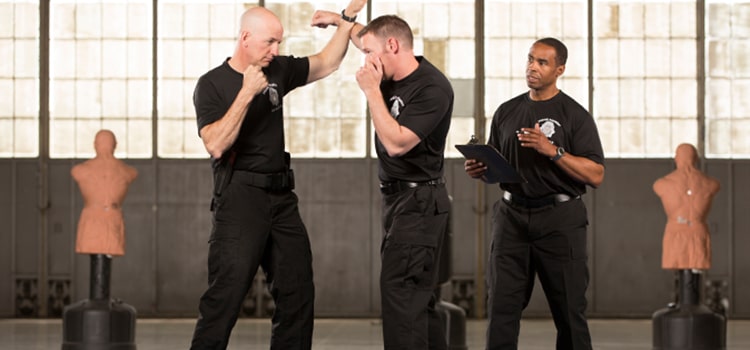In this Article
Learn How to Become a Homicide Detective

A homicide detective is a specialized law enforcement officer dedicated to investigating and solving attempted homicides and homicides. Working closely with patrol officers and forensic experts, they diligently uncover the details and circumstances surrounding a crime. Homicide detectives can be employed by city, county, state, or federal police departments, utilizing their expertise to bring justice to the victims and their families.
At the most basic level, the job of a homicide detective is to investigate suspicious deaths.
There are several types of police detectives, such as arson, juvenile crime, and sexual assault. Homicide detectives primarily deal with the four major categories of homicide:
- Murder
- Manslaughter
- Justifiable homicide
- Excusable homicide
“In Calgary we go out for suspicious deaths, any child under two who dies, any unwitnessed drownings, and some shootings,” explains Dr. Christina Witt, PhD, homicide detective with the Calgary Police Service.
How to Become a Homicide Detective in 5 Steps
Earn a degree.

Earning a degree may not be required to become a homicide detective, however, it can be beneficial.
All prospective detectives need to enroll in a police academy, but the requirements to do so vary by state and the individual academy. Most only require a high school diploma or GED to enroll, but some may require an associate or bachelor’s degree. Regardless of the police academy’s requirements, having a degree can make you stand out as a candidate.
Degrees in relevant subjects such as criminology, criminal justice, forensics, psychology and more may be especially advantageous.
Complete an initial program at the police academy.

You can choose to apply to jobs at local police departments or with the state patrol. But, in order to work as a police officer, you will need to complete your initial training through a police academy. This training is rigorous and will teach you the basics of being an effective police officer. The length of training varies by academy, but many take about six months to complete.
Gain experience.

Being promoted to a detective in the police force requires that you have sufficient experience as a police officer first. How quickly you can be promoted within all depends on your experience and performance. As mentioned in step one, having a relevant degree may help you move up the ranks faster.
Move up the ranks.

By putting in your time as a police officer, performing well and expressing interest in future detective work, you will be setting yourself up for success to eventually be promoted to detective. Homicide detectives are often trained on the job to be prepared for their exact duties.
What Do Homicide Detectives Do?
When a suspicious death is reported, homicide detectives evaluate the crime scene. Homicide units normally consist of one or more homicide teams on a police force, supervised by a lieutenant. Each team has a sergeant in charge and detectives who work under the sergeant.
“The cases are very serious,” Dr. Witt says. “The expectations are very high because what you’re charging the person with is very serious. So the investigation has to be very thorough. We get priority for access to resources.”
These detectives work with many other units within the service, including digital forensics, search and rescue, and media relations. Dr. Witt explains that homicide detectives are the same as other investigators — they usually simply have more experience.
“We are well-rounded in interviewing, warrant writing, file management, and being a primary on bigger cases. Our cases are higher profile than other criminal cases investigated by police investigators.”
Common Duties
- Assessing the crime scene
- Documenting and processing the scene (recording evidence)
- Canvassing the area to find witnesses
- Handling suspects
What Skills Does a Good Homicide Detective Need?
In addition to those items listed above, Dr. Witt notes the importance of working well in a team, having strong communication skills and professionalism, as well as being able to prioritize tasks.
Education Requirements: How a Degree Could Help You Progress Through the Ranks
You won’t be able to get a job as a homicide detective right out of school—people typically work as homicide detectives in the second half of their career. First, you’ll probably need to put in some amount of time working as a police officer.
If you have your high school diploma, you can enroll in a police academy. Training includes coursework, physical training, and psychological training. You’ll learn about topics including firearms, criminal law, and investigative practices. After graduation, you’ll need to work as a police officer for several years before you eventually transition to a detective role.
“Across the board, the education bar is technically fairly low,” Dr. Witt says, but adds that most people do have a professional background or have gone to university.
You don’t have to have a criminal justice degree to get into policing. However, a degree can make you more competitive if you’re looking to climb through the chain of command. If you do decide to pursue a degree in criminal justice, you’ll learn about topics such as the courts, criminal law, and criminal psychology. Business, law enforcement, or psychology can also be helpful degrees to obtain.
“Most of a homicide investigator’s training is informal,” Dr. Witt says. “There aren’t a lot of courses available.”
What to Consider Before Enrolling in a Program
Being a homicide detective is not for the faint of heart. Before you move forward with this career path, consider whether you have the following traits or skills:
- Experience in interviewing, writing, and file management
- Hard worker
- Able to work with a team
- Ability to make decisions under pressure
- Willing to work shifts
- Able to deal with people who are at their worst and in crisis
“The big thing is being willing to run these kinds of files because it’s a lot of time commitment,” Dr. Witt says. “These are very team-run files. You can’t run it in a silo. And you have to be comfortable in court testifying. It’s quite a grueling process. You’ll be in the hot seat explaining your decisions. Be prepared to be criticized by the public and maybe your superiors.”
If you’re interested in becoming a homicide detective, Dr. Witt recommends seeking out volunteer opportunities. Most agencies have volunteer and connect programs for students as young as high school. Being around police officers can help you make connections and get an up-close view to decide if this job is a good fit.
“You’re going to experience some trauma, just like any first responder. You’re going to be experiencing things that are difficult and making difficult decisions in very quick time.”
But Dr. Witt also adds that despite the hardships, this is a highly rewarding position. Being a police officer or homicide detective is a great fit for anyone who wants to make a difference with a hands-on job.
“People are calling you because they need you. You do get that immediate satisfaction of being able to help someone. And the family you build within the service — I’ve grown up with these people, it’s pretty unique.”
Career Progression
In most cases, you won’t be able to advance in your career beyond homicide detective because becoming a homicide detective is the end goal. While there are police department roles beyond detective, these roles have different job descriptions than detectives.
Many U.S. police departments use the following career ladder structure:
- Police officer
- Police detective
- Police sergeant
- Police lieutenant
- Police captain
- Police commander
- Police deputy chief
- Chief of police
“You have to be a police officer, get hired as a police officer, do patrol time (usually a minimum of five years), and then you may look to go to a specialty unit and get promoted,” Dr. Witt lists. “Usually being a homicide detective happens in the latter half of your career.”
If you’re interested in leading an investigation, you could switch over to a role that’s more management-oriented.
“To go somewhere else as an investigator after working as a homicide detective is totally fine, but you won’t be running the type of investigations you were,” Dr. Witt says.
You can get better at your job by taking courses such as interviewing, warrant writing, and major case management.
A Day on the Beat
Dr. Witt explains that homicide detectives have two types of workdays. “A fresh homicide looks very different from a regular workday,” she says.
If the unit is dealing with a new suspicious death, several tasks need to be done in the first 48-72 hours, including:
- Work with the medical examiner’s office to determine if the death is a murder
- Conduct investigative tasks
- Collect and review security camera footage
- Crime scene analysis
- Conduct arrest interviews, witness interviews, and non-custodial interviews
- Attend autopsy and work with analyst
Detectives often work around the clock for the first 48-72 hours of an investigation, collaborating with other units to collect all of the evidence needed. Workdays beyond these initial stages look different: detectives continue working on tasks for their own cases as well as assisting with the rest of the team’s ongoing cases. Tasks on these types of days can include:
- Preparing disclosure for a case where charges are laid
- Reviewing reports and identify investigative leads
- Witnessing management and family liaison
- Continuing media strategy
“It’s primarily computer work when not doing interviews and other tasks. We spend a lot of time at our desks on the computer,” Dr. Witt says, “It’s not at all as exciting as it is on TV.”
Her unit in Calgary has two teams. Every other week, one team is on call for seven days. They’ll immediately come out to the scene if a new homicide occurs. When a team starts work on the case, they use a command triangle model:
- Primary investigator (makes decisions, conducts the speed and flow of the investigation)
- Team commander (assists and monitors how the case is developing)
- File manager (responsible for documenting all of the information coming in)
If you are helping with a case in a role outside of this main triangle, you might spend time at the crime scene making sure the investigation is being done correctly.
Are Homicide Detectives in Demand and How Much Do They Earn?
According to the BLS, detectives and criminal investigators made a median annual salary of $91,100 in 2023. However, this number will vary based on your location and how many years of experience you have.
How Do They Compare to Other Police Careers?
Job growth for homicide detectives looks promising. Employment of private detectives and investigators is projected to grow 1.5% through 2032, with about 2,100 new job openings projected each year.
“There is job security and good pay. The pay is pretty decent considering you are only required to have a high school diploma,” Dr. Witt says. She has been working for 25 years, and in two years, she’ll be eligible to retire with a pension. “If you get sick or injured the service supports you instead of firing you.”


